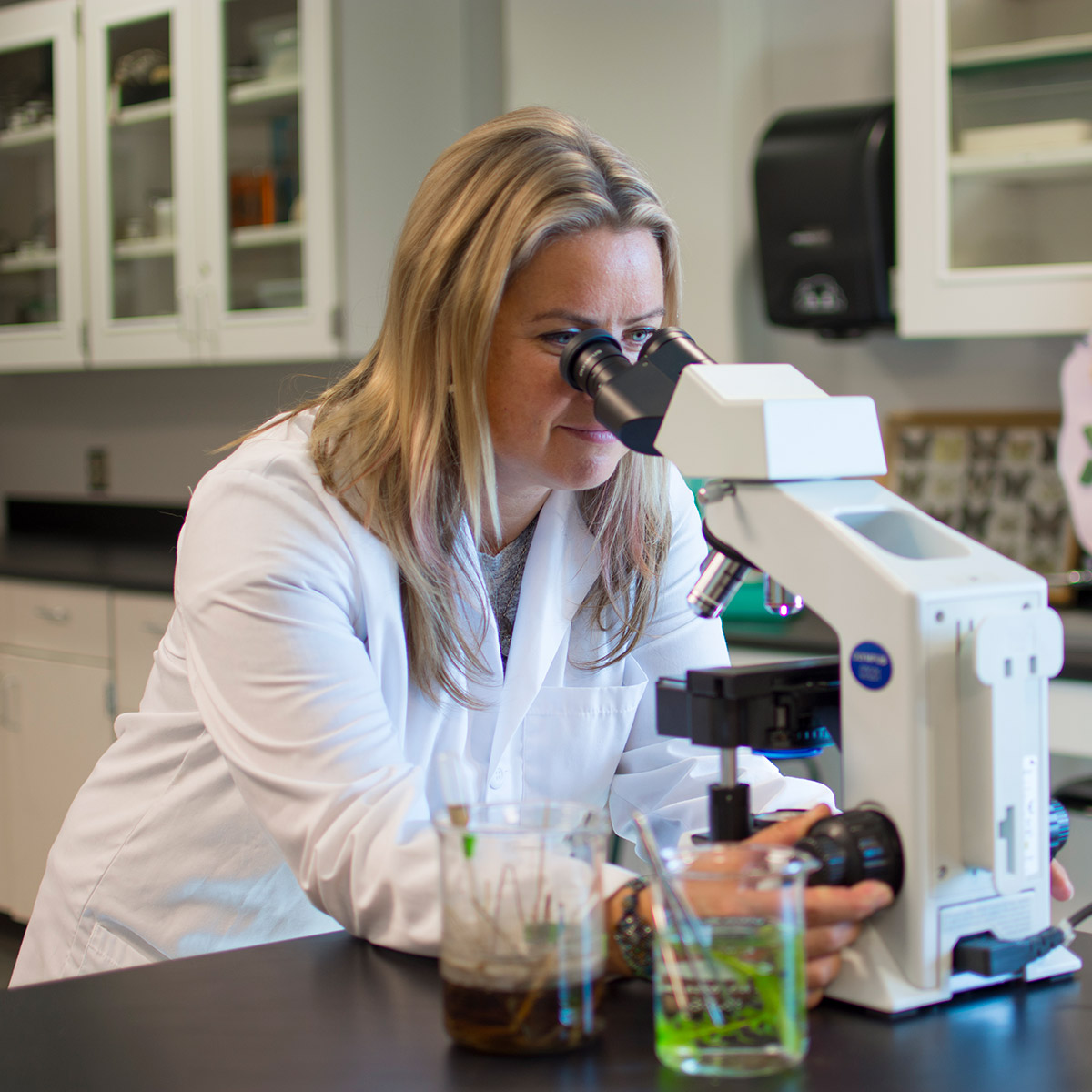Biology
Biology opens the doorway into the life sciences. Whether your interests lean toward nursing or environmental science, the study of biology will enrich your understanding of the living world and your role within it.
Your studies in biology will meet the requirements for entry into health care programs, research careers, and applied or field science. This could be your first step toward a career in medicine or research. Credits earned will transfer to a four-year college or university towards a bachelor’s degree.
Spacious labs, modern equipment, and an excellent collection of models are all ready and available for students. Hands-on learning and small classroom size, as well as a strong tutoring program, make CCD the right choice.

Academic support is provided through CCD's Excel Zone, which helps students succeed by offering a variety of learning opportunities. We are located on campus on the 4th floor of the Confluence building.
CCD Online offers fully online certificates and degrees, and individual online courses to help match your busy schedule. This program offers 100 percent of its degree either online or through a hybrid program.
Your first step is to see if online learning is right for you. Online and hybrid environments offer much more flexibility but require more self-direction and self-discipline. Certain work habits, learning styles and skills contribute to a successful online or hybrid learning experience.
Online Experience Questions?
303.352.6785 | TLC@ccd.edu
Some programs and/or courses may require additional fees in addition to the base tuition and fees. High-cost course fees are used to support the maintenance and development of the course labs and are embedded within your general tuition.
The following courses have additional fees:
BIO 1005, BIO 1111, BIO 1112, BIO 2101, BIO 2102, BIO 2104
View the 2024-2025 Course Specific Fees
This program is eligible for federal financial aid.
Your first step is to connect with the Financial Aid office to discover how you can afford college. Our dedicated staff and support services help you wade through all the legal language and get you past the first hurdle to completing your educational goals.
In addition, CCD has $1,000,000 available in scholarships. Learn More!
CCD's biology designation is a guaranteed transfer (GT) program.
GT programs enable all college students to complete their first two years of college here at CCD and then transfer to any public college in Colorado as a junior. It is called the DWD program (Degrees with Designation). This program saves you money and time.
A Two-Year Degree from CCD Can Lead to a Four-Year Degree from:
- Adams State University
- Colorado Mesa University
- Colorado State University – Ft. Collins
- Colorado State University – Pueblo
- Fort Lewis College
- Metropolitan State University of Denver
- University of Colorado Boulder
- University of Colorado Colorado Springs
- University of Colorado Denver
- University of Northern Colorado
- Western State Colorado University
Please speak with your program chair regarding internship and research opportunities.
What Can I Do with My Major?
Employment of biological technicians is projected to grow 10 percent from 2016 to 2026, faster than the average for all occupations. Greater demand for biological and medical research is expected to increase the need for these workers.
Biotechnology research plays a key role in scientific advancements that improve people’s quality of life. One new area of biotechnology, synthetic biology, will employ biological technicians in attempts to redesign biological systems or living organisms to produce useful things, such as chemicals, in more efficient ways than those are currently used. New applications of biotechnology may be the subject of research topics ranging from new ways to produce biofuels to providing new treatments for diseases, such as cancer and Alzheimer’s disease.
There are unlimited possibilities with a degree in biology. An A.S. in biology sets the stage for a career in a number of areas, including a physician, nurse, veterinarian, and scientific researcher.
- Biologist
- Biotechnology
- Educator (in a school, science museum, zoo, aquarium, park, or nature center)
- Environmental Management and Conservation
- Forensic Science
- Healthcare
- Research
- Science Writing and Communication
- Veterinarian
- and More
How Much Can I Expect to Earn?
The median annual wage for biological technicians was $51,430 in May 2023.. The median wage is the wage at which half the workers in an occupation earned more than that amount and half earned less. The lowest 10 percent earned less than $36,970, and the highest 10 percent earned more than $80,330.
The information provided here is by the U.S. Bureau of Labor Statistics, Occupational Outlook Handbook for biological technicians.
